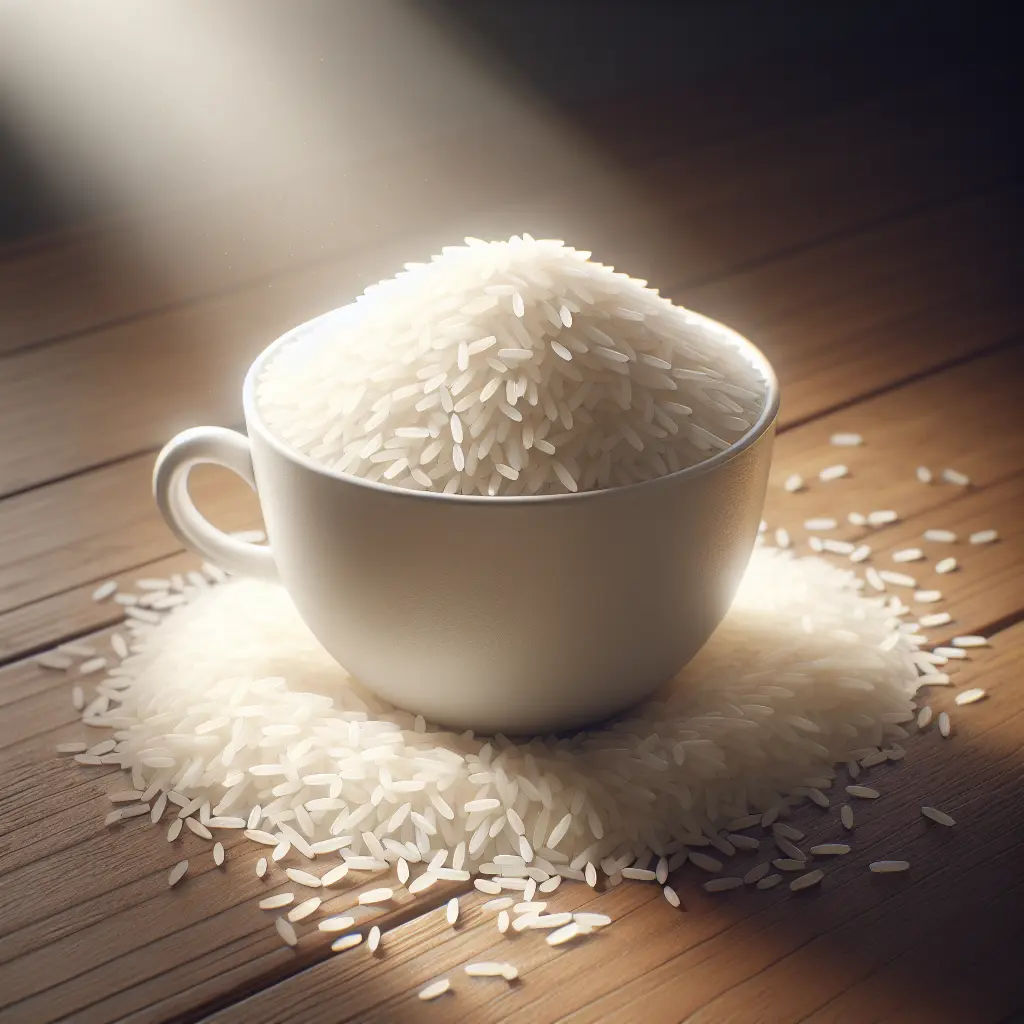Rice White: Nutritional Value and Health Implications
Rice white, a refined grain, is a versatile staple food that has been a part of many cultures' diets for centuries. It is derived from brown rice, but the outer bran and germ layers are removed during processing, resulting in a whiter appearance and a longer shelf life.
Nutritional Value
One cup (185 grams) of cooked rice white provides the following nutrients:
- Calories: 205
- Protein: 4.3 grams
- Fat: 0.4 grams
- Carbohydrates: 45 grams
- Fiber: 0.6 grams
- Sugar: 0.1 grams
Rice white is a good source of carbohydrates, providing energy for the body. It also contains some protein, essential for building and repairing tissues. However, it is lower in fiber, vitamins, and minerals compared to brown rice.
Health Implications
While rice white is a nutritious food, it has been associated with certain health implications due to its lower fiber content.
- Glycemic index: Rice white has a high glycemic index (GI), meaning it can cause a rapid spike in blood sugar levels. This may be a concern for people with diabetes or insulin resistance.
- Weight gain: Rice white's high GI may contribute to weight gain if consumed in large amounts, as it can lead to feelings of hunger and overeating.
- Nutrient deficiencies: The removal of the bran and germ layers during processing results in the loss of valuable nutrients, such as fiber, vitamins B1 (thiamin) and B3 (niacin), and minerals like iron and magnesium.
Culinary Uses and Preparation
Rice white is a versatile ingredient that can be used in various culinary preparations.
- Steamed rice: Steaming is the traditional method of cooking rice white, resulting in fluffy and separate grains.
- Boiled rice: Boiling rice white is another option, but it may result in a stickier texture.
- Fried rice: Fried rice is a popular dish where cooked rice white is stir-fried with vegetables, meat, and seasonings.
- Sushi: Rice white is the base ingredient for sushi, a Japanese dish that combines vinegared rice with seafood, vegetables, and nori (seaweed).
- Desserts: Rice white can also be used in sweet dishes, such as rice pudding and rice cakes.
Conclusion
Rice white is a nutritious food that offers energy and some protein. However, its lower fiber content compared to brown rice may have certain health implications. Consuming rice white in moderation as part of a balanced diet can provide essential nutrients and contribute to overall well-being.
How many calories are in Rice White?
Each 1 cup of Rice White contains 205 calories.
Rice White Nutritional Information
| Nutrient | Amount per 1 cup (158g) |
|---|---|
| Calories | 205 Calories |
| Protein | 4.3g |
| Fat | 0.4g |
| Saturated Fat | 0.1g |
| Cholesterol | 0mg |
| Carbohydrates | 45g |
| Dietary Fiber | 0.6g |
| Sugar | 0.1g |
| Sodium | 0.0016mg |
| Potassium | 0.0553mg |
| Calcium | 0.016mg |
| Iron | 0.0019mg |
